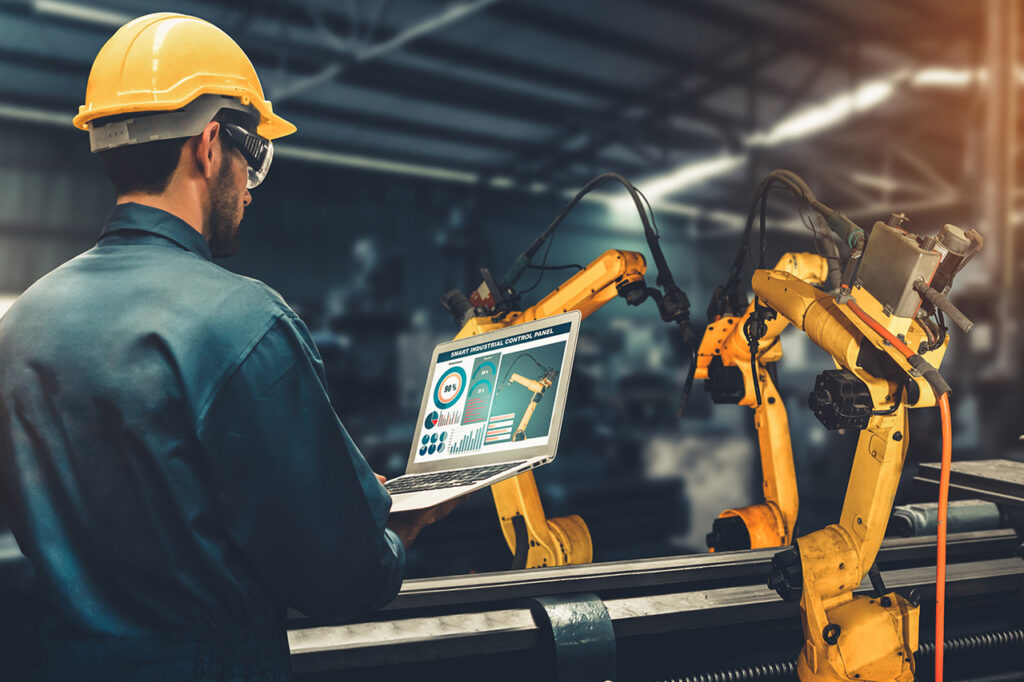A diagnosis to tailor training to the needs of the industry of the future
Artificial intelligence, cybersecurity, cobotics... the development of new technologies is bringing about a profound transformation of industry towards its 5.0 version. To match training with the needs of businesses, the University carried out an assessment of the "production chain of the future" as part of the France 2030 AMI-skills and jobs of the future national call for projects, which it won.

"The aim of the assessment is to determine the needs of local businesses in terms of the production chain of the future and to see what improvements can be made to our training programs, with a view to enhancing the employability of our students," explains Jean-François Dubé, project leader and Professor the University of Montpellier. The assessment launched by the IUT of Béziers, the IUT of Nîmes, Polytech Montpellier, and the École Nationale Supérieure de Chimie de Montpellier as part of the France 2030 AMI-compétences et métiers d'avenir national call for projects, was guided by the Caisse des Dépôts on the themes of artificial intelligence and cybersecurity, with promising elements for the future of training for future company employees.
Differentiated needs among manufacturers in the region
Now connected, digitized, and robotized, Industry 5.0 is transforming the main components of production lines. These transformations are giving rise to a renewed vision of how work is organized in factories. The industry of the future is resolutely human-centered (quality of life at work, inclusion) and integrates the challenges of sustainability and eco-responsibility. All of the manufacturers surveyed as part of the diagnosis appear to have embarked on the digital transformation of their production lines but say they still have a long way to go in this transformation. Manufacturers in the region express greater needs for cybersecurity experts (security architects, cryptologists, secure development specialists, etc.) than for artificial intelligence experts (AI software designers and developers, data scientists, data analysts, etc.). Conversely, the need for hybrid profiles appears to be greater in artificial intelligence than in cybersecurity, particularly for engineers capable of driving the digital transformation of production lines (cobotics or automation engineers, etc.). "The industry's stakeholders have also expressed a need to upgrade skills in traditional industrial professions. By 2025, nearly 400 AI technicians and engineers will need to be trained at the regional level, and all students will need to be trained in cybersecurity," says Jean-François Dubé.
Towards a transformation of the training offer
The University of Montpellier offers nearly 25 courses training students for careers in industry and industrial IT, with more than 900 students graduating each year. It thus ensures a relative continuity of training courses for careers in industry in the region. While the University already offers some specialized training in cybersecurity and, to a lesser extent, AI, the challenge now is to train more students in these areas. Starting in the 2023 academic year, a new three-year professional degree program at the Béziers University Institute of Technology (IUT) will focus on "Robotics and Artificial Intelligence for Industry 4.0 and 5.0." "Ultimately, this assessment should enable the University's departments, schools, and institutes to better guide strategic choices to transform our programs, both in terms of the evolution of existing courses and the choice of future teaching equipment to support the hybridization of profiles and the development of learners' skills in order to improve their employability," concludes Jean-François Dubé.